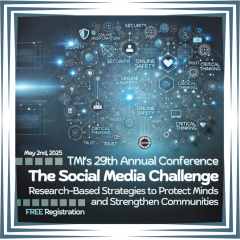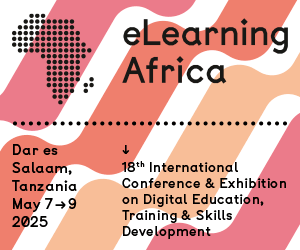Growing Up in Public: Digital Identity and Youth
 Brussels (BE), November 2009 - The meaning and importance of digital identity across formal and informal lifelong learning pathways will be one of the topics at ONLINE EDUCA BERLIN 2009. Margarita Perez Garcia from MENON is one of the presenters who will discuss the issues of the management and control of our digital identity, as well as the impact that our increased online visibility, through the use of the social web, has on our digital lives.
Brussels (BE), November 2009 - The meaning and importance of digital identity across formal and informal lifelong learning pathways will be one of the topics at ONLINE EDUCA BERLIN 2009. Margarita Perez Garcia from MENON is one of the presenters who will discuss the issues of the management and control of our digital identity, as well as the impact that our increased online visibility, through the use of the social web, has on our digital lives.
Which general impacts do you expect from "growing up in public"?
Margarita Perez Garcia: When I use the phrase 'growing up in public', I am referring to the increased visibility that many young people have and will continue to experience throughout their lifetime engagement with social media. The Internet is now a space dominated by the connections between individuals and their ability to [re]use and create rich content - something that now lies within everyone's grasp, not just that of the technically and technologically privileged.
This, coupled with the diversification of devices we use to access the Internet within a pervasive, always-connected environment, means that we now have a multiplicity of what Holland (1998) might call 'spaces of authoring' or self-fashioning.
One of the main impacts that I am interested in that is a result of this increased level of life exposure via the Internet is the ongoing work required in the construction of digital identities. How do young people manage and maintain coherent and purposeful digital identities when public and private boundaries are often blurred and the tools for controlling digital histories are lacking? Real issues emerge from the complexities of this process within, for example, the world of job seeking and active engagement in online communities of practice.
How can we marginalize the risks? Do we need more rules, limitations, or control?
Margarita Perez Garcia: Among the variety of solutions to help citizens to manage their digital identities, there are three that interest me as an educator, parent, and citizen. The first is raising awareness in order to increase young people's digital identity literacy. By this I mean the ability of individuals to manage their digital identities in an efficient manner in accordance with their changing life goals.
I am particularly interested in the responsibility and accountability that parents and guardians have towards the digital identity of their children, especially when they have not started to craft their own digital identity spaces. Here, specific actions to support parents and children in acquiring digital identity literacies are often lacking. Secondly, in the area of technology, we need to see improvements in the level of granularity and access control to user-generated content. Individuals need to be empowered to decide what they share, with whom, and for how long this is required.
The standard three-level sharing policy - with all, with my friends, and with my family - is no longer adequate. Finally, we need to be able to assert our right to control user-generated content about ourselves. By having the tools and processes available to discover and delete undesired persistent content, we should all have the ability to remove those digital traces that might impact negatively our lives.
Should parents be responsible for their children's activities on the web?
Margarita Perez Garcia: Parents should be responsible for their children's education in matters related to digital identity literacy, helping them to gain awareness about the extent of their digital personas and supporting them in the crafting of their digital selves.
For example, at the relevant age (each has different needs), parents should discuss the following with their children:
- the extent of their digital identity,
- who contributes to it,
- the reach of their activities within the different social networks and communities they participate in,
- the persistence of their digital traces and their short, medium, and long term impact,
- the creation of alternative digital selves,
- how to track unwanted information about themselves,
- digital identity etiquette, and
- awareness about cyber security and identity threats.
Is there any recommendation from your side on how to handle one's own presence in online communities or on websites?
Margarita Perez Garcia: This is an area that we are investigating within the Rhizome project. To this aim, we are using a particular methodology based on identifying successful practices through the production of a set of design patterns for digital identity. This is an approach that seeks to empower individuals to design their own solutions to the problems they encounter when constructing and managing their digital identity, be it within online communities or operating in a professional work-based setting.
In terms of recommendations, these will vary according to the age and the purpose of the subject. For me, a useful framework to understand digital-identity management could be ordered around the following processes:
- increase your awareness of your digital self,
- craft a home for your online presence,
- claim the trusted sources relating to your digital persona,
- aggregate sources and traces of your digital selves for specific purposes, and
- compartmentalize and protect the digital selves you don't want to be exposed to all via the Internet, for example maintaining the professional-personal divide.
Margarita Perez Garcia will present her point of view on Thursday, 03 December 2009, 11:45 - 13:15, in the session "Digital Identity", room "Potsdam III"










